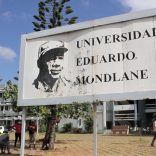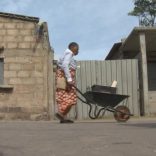Mozambique: PDUNM will rebuild two thousand houses and generate around eight thousand jobs
Mozambique: Violence affecting civilians on track to reach record high in 2025, UN warns

Image: OCHA
The United Nations has warned that violence in Cabo Delgado province, in northern Mozambique, is on track to reach a record high this year, with 519 attacks reported by the end of August.
According to a field report by the United Nations Office for the Coordination of Humanitarian Affairs (OCHA), the majority of the incidents — which include the use of improvised explosive devices ( IEDs ) — are attacks by non-state armed groups (NSAGs) against civilians.
Cabo Delgado province, rich in natural gas, has been facing an armed rebellion since 2017, which has caused thousands of deaths and a humanitarian crisis, with more than a million people displaced.
The UN agency reports “escalating conflict and violence affecting civilians” in Ancuabe, Balama, Chiúre, Macomia, Mocímboa da Praia, Montepuez, Muidumbe, and Nangade in Cabo Delgado province; Memba in Nampula province; and in some regions of Niassa province.
“Civilian violence is on track to reach a record high in 2025, with 519 attacks reported by the end of August, compared to 448 in 2022,” it warns.
OCHA also reports that data from humanitarian organizations operating in the region indicate that, “as of September 24, over 20,000 people were displaced” across Cabo Delgado, “including 10,000 children”.
The organization admitted, however, that “the numbers of people affected could be much higher, as many remain in their communities fleeing to the bush and returning home as soon as security permits, and also many displaced people are likely to be with host communities.”
“In Nampula province, on 25 September, Mozambican Defense Forces intercepted an NSAG group in Erati district, Nampula province, arresting one member. In retaliation, NSAGs reportedly killing a civilian, whose body was found along the Lúrio River,” it is described.
“On 26 September, attacks in Memba (Nampula) resulted in multiple abductions and the burning of homes. Further attacks on 28 September in Memba destroyed homes and public infrastructure, including a school and health center in Pavala community,” says OCHA.
“In Niassa, IS-Mozambique, via a media outlet linked to the Islamic State, claimed responsibility for the September 22 abduction of a couple in the Marrupa district; the woman was later released,” the organization reported.
The UN agency explains that “people who remain in their communities are also affected, many of whom are returnees who had been displaced previously and had returned to their home areas as humanitarian aid provision dropped significantly in the areas of displacement, primarily in southern Cabo Delgado, starting in 2023.”
“Partners are providing assistance to displaced populations in Mueda, Muidumbe, Ancuabe, Balama, and Montepuez through the NGO-led Rapid Response Mechanism (RRM), but many in other districts remain without support; more flexible funding is needed,” the document adds.
By the end of July, attacks by these groups had already displaced more than 57,000 people in the Chiúre district, southern Cabo Delgado province, according to previous official data.
Meanwhile, Cabo Delgado province had seen a resurgence of attacks by rebel groups, with the districts of Chiúre, Muidumbe, Quissanga, Ancuabe, and Meluco being targeted.
More recently, Mocímboa da Praia also recorded several deaths, leading the organization Doctors Without Borders to suspend local activities for security reasons.
In 2024 alone, at least 349 people died in attacks in northern Mozambique, most claimed by the extremist group Islamic State — a 36% increase over the previous year.












Leave a Reply
Be the First to Comment!
You must be logged in to post a comment.
You must be logged in to post a comment.